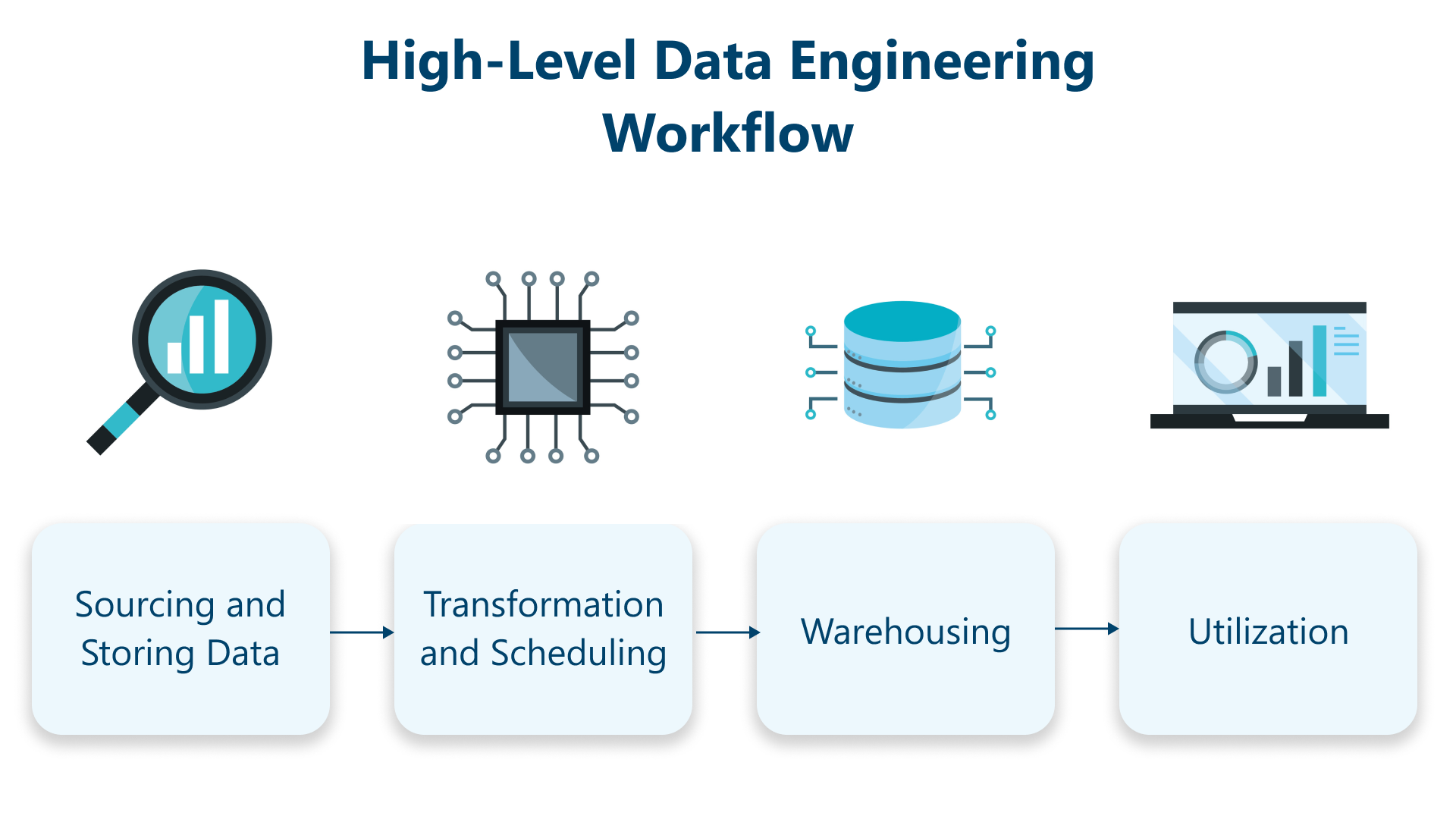Data engineering is the discipline concerned with designing, building, and maintaining the infrastructure and architecture that enables the collection, storage, and processing of data at scale. Think of data engineers as the architects and builders of the data ecosystem within organizations. Their primary focus is on creating robust pipelines that facilitate the seamless flow of data from source to destination, ensuring its quality, reliability, and accessibility along the way.
The Role of Data Engineering:
At its core, data engineering serves as the backbone of data infrastructure, providing the foundation upon which data-driven initiatives thrive. Here are some key aspects of the role of data engineering:
- Data Pipeline Development: Data engineers are responsible for developing and maintaining data pipelines – the interconnected series of processes that extract, transform, and load (ETL) data from diverse sources into storage systems such as databases, data warehouses, or data lakes. These pipelines are meticulously designed to handle large volumes of data efficiently while ensuring its integrity and security.
- Data Architecture Design: Data engineers design the architecture of data systems, taking into account factors such as scalability, performance, and fault tolerance. They leverage a variety of technologies and frameworks, including distributed computing platforms like Apache Hadoop and cloud services such as Amazon Web Services (AWS) or Microsoft Azure, to build resilient and scalable data infrastructures.
- Data Quality Assurance: Ensuring the quality of data is paramount in data engineering. Data engineers implement mechanisms for data validation, cleansing, and enrichment to maintain data integrity throughout the pipeline. By identifying and rectifying errors, inconsistencies, and anomalies, they ensure that organizations can rely on accurate and trustworthy data for decision-making and analysis.
- Performance Optimization: Data engineers are constantly optimizing the performance of data systems to meet the growing demands of data-intensive applications. They fine-tune queries, optimize database schemas, and implement caching strategies to enhance data retrieval speed and efficiency. Additionally, they monitor system performance, troubleshoot issues, and implement solutions to improve overall system reliability and uptime.
- Integration with Emerging Technologies: The field of data engineering is constantly evolving, driven by advancements in technology and the emergence of new data sources and formats. Data engineers stay abreast of the latest trends and technologies, such as real-time processing frameworks like Apache Kafka, containerization with Docker and Kubernetes, and serverless computing models. By embracing these innovations, they unlock new capabilities and possibilities for data-driven insights and applications.
Conclusion:
In conclusion, data engineering plays a critical role in enabling organizations to harness the power of data for strategic decision-making, innovation, and competitive advantage. From designing robust data pipelines to ensuring data quality and optimizing system performance, data engineers are the unsung heroes who lay the groundwork for data-driven success. As organizations continue to embark on their digital transformation journeys, the importance of data engineering will only continue to grow, shaping the future of business and technology in the data-driven era.
